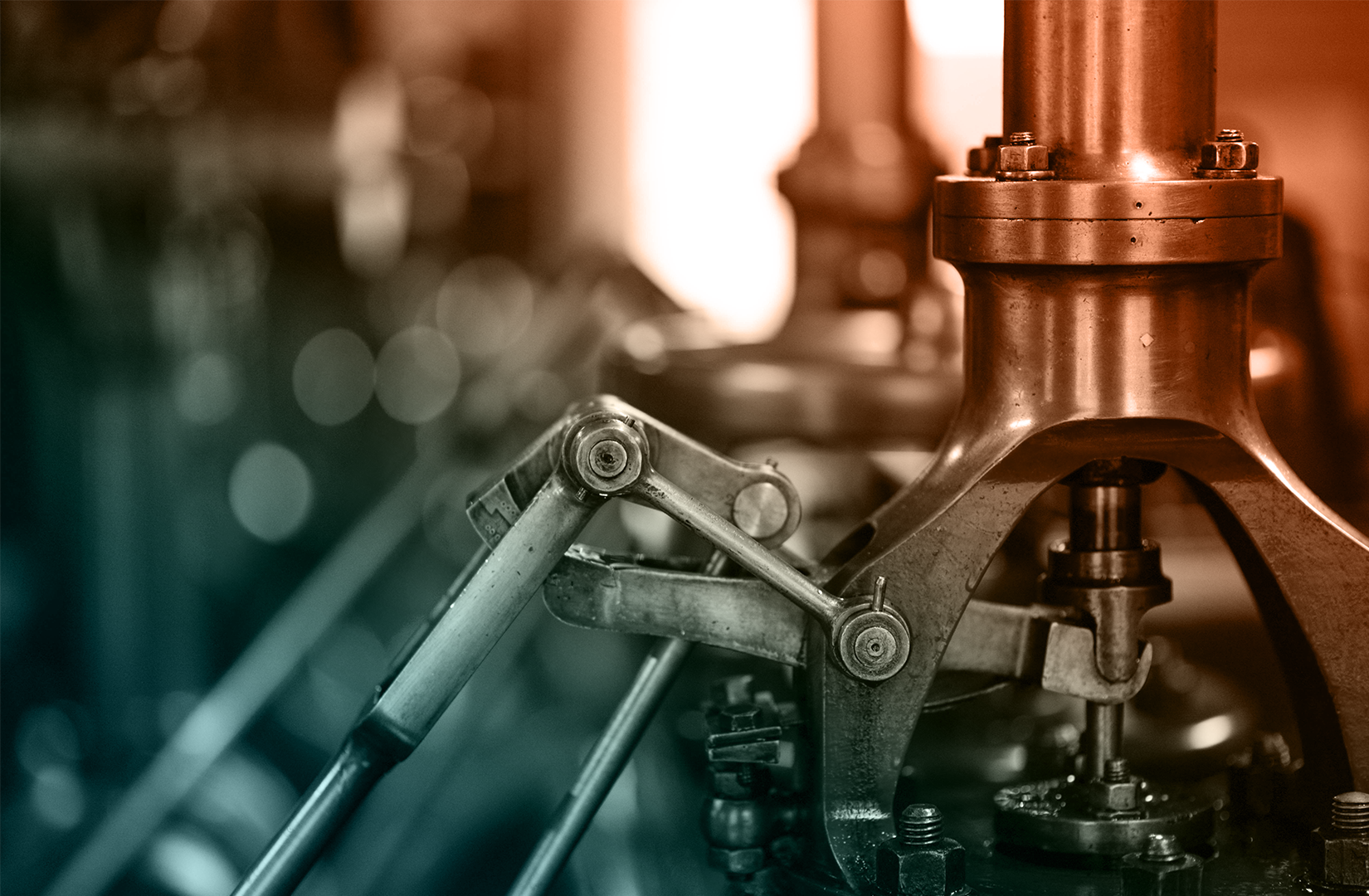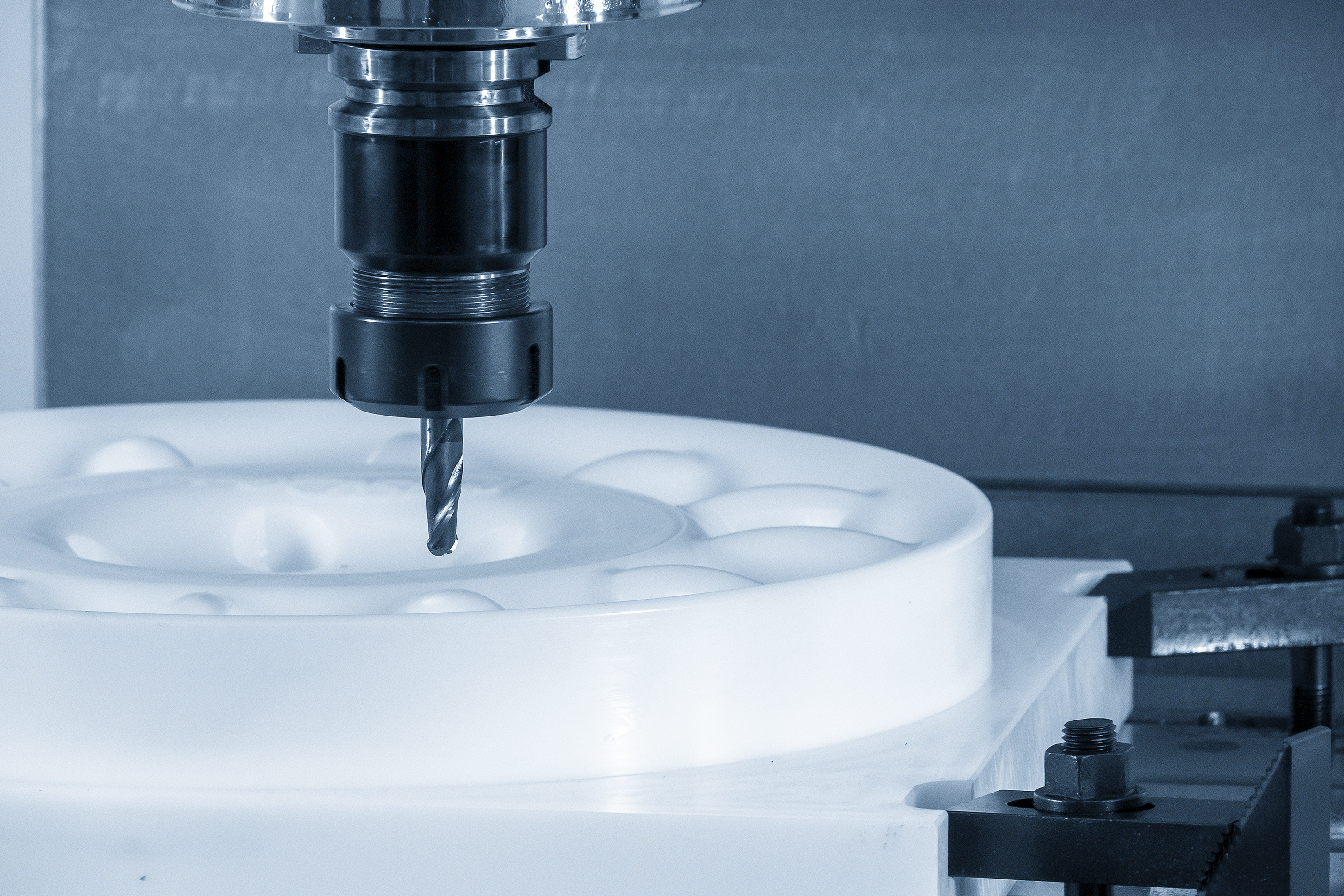
Sanitary Gaskets: Features, Applications, and Compliance in Hygienic Sealing
Sanitary gaskets are essential components used in industries where hygiene and cleanliness are critical, such as food and beverage processing, pharmaceuticals, and biotechnology. These gaskets provide a secure and leak-proof seal between pipe connections, ensuring that fluids remain uncontaminated. This guide covers the types, features, common applications, and the pros and cons of sanitary gaskets, with detailed information on tri-clamps, flanged gaskets, USP Class VI, FDA compliance, and metal detectable & x-ray detectable materials.
USP Class VI silicone, CanRez® FFKM and Kalrez® sanitary gaskets, O-rings, gasket rapid manufacturing, & custom molded parts are available now!
Check with one of Canyon’s helpful product engineers for an expert material and manufacturing recommendation.

Features of Sanitary Gaskets
Sanitary gaskets are designed with specific features to meet the stringent requirements of hygienic applications:
- High Purity Materials: Sanitary gaskets are made from materials that are safe for use in food, beverage, and pharmaceutical applications. Common materials include EPDM, Silicone, Viton, and PTFE.
- Compliance with Standards: Many sanitary gaskets meet industry standards, including USP Class VI and FDA compliance, ensuring that they are safe for use in sensitive environments.
- Metal Detectable & X-Ray Detectable: Some sanitary gaskets are made from materials that are metal or x-ray detectable, allowing for easy identification and removal if they become dislodged or damaged during processing.
- Temperature and Chemical Resistance: Sanitary gaskets are designed to withstand high temperatures, steam, and chemical exposure, making them suitable for use in harsh processing environments.
- Smooth, Non-Porous Surface: The smooth surface of sanitary gaskets prevents the buildup of bacteria and contaminants, ensuring that fluids remain pure and uncontaminated.
Common Applications of Sanitary Gaskets
Sanitary gaskets are used in a wide range of industries where cleanliness and product integrity are paramount:
- Food and Beverage Processing: Sanitary gaskets are essential in food and beverage production, providing secure seals in piping systems, tanks, and processing equipment to prevent contamination.
- Pharmaceuticals: In pharmaceutical manufacturing, sanitary gaskets ensure that drugs and other products are processed in a clean environment, free from contaminants.
- Biotechnology: Sanitary gaskets are used in biotechnology applications where the purity of fluids and biological materials is critical, ensuring that processes are conducted in a sterile environment.
- Dairy Production: In dairy processing, sanitary gaskets are used to seal connections in pasteurizers, homogenizers, and other equipment, maintaining product safety and quality.
- Brewing: In breweries, sanitary gaskets are used to seal connections in fermentation tanks, filters, and bottling lines, ensuring that beer remains uncontaminated.
Please consult a Canyon Components Engineer about your specific application and we will use our decades of experience to formulate a solution that fits your need.
Get a Quote Now!

Types of Sanitary Gaskets
Sanitary gaskets come in various types, each designed to meet specific industry standards and application needs:
- Tri-Clamp Gaskets: Also known as tri-clover gaskets, these are widely used in the food, beverage, and pharmaceutical industries. They are designed to fit between tri-clamp fittings, providing a secure seal.
- Flanged Gaskets: These gaskets are used in flanged connections, providing a tight seal between two flanges. They are commonly found in piping systems where high pressure and cleanliness are required.
- O-Ring Gaskets: These are circular gaskets that provide sealing in round, smooth-bore pipes or fittings. They are commonly used in sanitary applications requiring a reliable seal.
- Screen Gaskets: These gaskets incorporate a mesh screen that filters out particles while allowing the passage of fluids, making them ideal for applications where contamination control is crucial.
- Orifice Plate Gaskets: Designed with a precise hole or orifice in the center, these gaskets regulate flow rates in sanitary piping systems, ensuring consistent fluid handling.
Canyon Components strives to meet all customer service requests. Feel free to contact Canyon Components engineering and let our knowledgeable staff help you design the perfect part for your needs.

Sanitary Gasket Materials
CanRez™ FFKM Perfluoroelastomer
Extreme temperatures & chemicals require extreme solutions! CanRez™ FFKM sanitary gaskets & tri-clamp gaskets offer extreme reliability where you need it most! Thousands of sizes in stock now!
CanGuard™ RFI & EMI Shielding Materials
CanGuard™ sanitary gasket & tri-clamp gasket materials have been developed to offer superior sealing solutions with enhanced electromagnetic interference (EMI) shielding and radio frequency interference (RFI) shielding.
Kalrez® FFKM Perfluoroelastomer
Canyon Components offers Kalrez® Perfluoroelastomer (FFKM) sanitary gaskets & tri-clamp gaskets, O-rings, gaskets, & custom molded parts at competitive prices and with great lead-times.
Parker® Sanitary Gaskets & Tri-clamp Gaskets, O-rings, Parofluor parts, parker FKM Viton
Canyon Components offers Parker Hannifin® sanitary gaskets & tri-clamp gaskets, O-rings, Gaskets, Perfluoroelastomer (FFKM) parts, & custom molded parts at competitive prices and with great lead-times.
FKM (Viton®, Fluorocarbon)
FKM sanitary gaskets & tri-clamp gaskets, compounds, O-rings, gaskets, & custom molded parts exhibit excellent mechanical attributes as well as excellent resistance to high temperatures, mineral oil, ozone, fuels, hydraulic fluids, and many other solvents and chemicals.
Silicone (VMQ, PVMQ)
Platinum cured, USP class VI silicone sanitary gaskets & tri-clamp gaskets, seals, O-rings, gaskets, & custom molded parts are excellent for extreme temperatures in static applications. Canyon Components carries a range of silicone materials, and we are happy to custom tailor a seal to meet your application requirements!
Metal Detectable
Metal detectable sanitary gaskets are engineered for industries like food, beverage, and pharmaceuticals, where contamination prevention is essential. These gaskets contain metal additives, making them easily detectable by metal detectors. Compliant with FDA and USP Class VI standards, they enhance safety and help prevent contamination in hygienic processing environments.
X-Ray Detectable
X-ray detectable sanitary gaskets are designed for use in food, beverage, and pharmaceutical industries where contamination control is critical. These gaskets incorporate metal particles visible to X-ray equipment, ensuring foreign material detection. They meet FDA and USP Class VI standards, offering enhanced safety and compliance in hygienic processing environments.
PTFE (Teflon)
The harshest environments require specialized solutions. Often times, a Canyon Components PTFE sanitary gaskets & tri-clamp gaskets are used in harsh chemical environments. Polytetrafluoroethylene, commonly known as PTFE or Teflon®, is a high-performance fluoropolymer known for its exceptional chemical resistance, low friction, and non-stick properties.
Fluorosilicone (FVMQ)
The mechanical and physical properties of Fluorosilicone sanitary gaskets & tri-clamp gaskets, O-rings, gaskets, & custom molded parts are very similar to silicone. Fluorosilicone O-rings, gaskets, & custom molded parts offer improved flexibility and strength, better resistance to fuels and mineral oil, but reduced hot air resistance.
Aflas® (TFE/P)
TFE/P (Aflas) sanitary gaskets & tri-clamp gaskets, compounds, O-rings, gaskets, & custom molded parts gives high resistance to steam, hot water, atmospheric wear, and many chemicals. TFE/P compounds provide superior performance in water, steam and virtually all caustic chemicals.
EPDM (Ethylene Propylene)
EPDM sanitary gaskets & tri-clamp gaskets, materials, O-rings, gaskets, & custom molded parts can operate over a wide temperature range, and are compatible with glycol fluids that cause problems for most typical elastomeric seals.
NBR (Nitrile, Buna-N)
Nitrile sanitary gaskets & tri-clamp gaskets, O-rings, gaskets, & custom molded parts are very oil-resistant, have strong mechanical properties, are resistant to wear, and are relatively inexpensive. These properties make Nitrile the most commonly used general purpose O-ring, gasket, & custom molded part material.
HNBR (Hydrogenated Nitrile)
Hydrogenated Nitrile sanitary gaskets & tri-clamp gaskets, O-rings, gaskets, & custom molded parts offer higher strength and reduced degradation at high temperatures compared to conventional Nitrile materials. These properties make HNBR materials popular in the oil and gas industry, as well as many applications in the chemical industry.
Neoprene (CR)
Chloroprene was the first synthetic rubber, and was developed commercially under the name Neoprene®. Chloroprene sanitary gaskets & tri-clamp gaskets, rubbers, O-rings, gaskets, & custom molded parts contain Chlorine in the polymer to reduce the reactivity to many oxidizing agents, as well as to oil and flame.
Polyurethane (PU, AU)
Polyurethane sanitary gaskets & tri-clamp gaskets, O-rings, gaskets, & custom molded parts generally have two or three times greater tensile strength and wear resistance than Nitrile and comparable polymers. Polyurethane also provides excellent permeation resistance when compared to most rubbers.
Product Types
Custom Parts
Here at Canyon Components, we make sure to offer our customers any manufacturing technique they desire. Whether your sanitary gaskets & tri-clamp gaskets, O-rings, gaskets, & custom molded parts be rubber, plastic, or metal, rest assured that Canyon Components can make it!
Gaskets & Custom Cutting
Whether your custom cut parts be rubber, plastic, sponge, composite, or metal, rest assured that Canyon Components can make it! Canyon Components strives to meet all customer service requests. If you need something that isn't listed, feel free to contact a Canyon Components product and application consultant.
Specialty Compliances
Canyon have materials available for sanitary gaskets & tri-clamp gaskets, O-rings, gaskets, & custom parts with compliances ranging from USP Class VI <87> & <88> for medical applications, to FDA CFR 21.177.2600 grades A through F for different food types, to the various drinking water specifications like KTW and NSF. Whether it's metal, rubber, or plastic, Canyon can meet your needs!
Compliance and Detectability
USP Class VI
- USP Class VI: Sanitary gaskets that meet USP Class VI standards are tested for biocompatibility, ensuring that they do not release harmful substances when used in pharmaceutical and medical applications. This certification is crucial for ensuring the safety and purity of products.
FDA Compliance
- FDA Compliance: Many sanitary gaskets are manufactured from materials that comply with FDA regulations for food contact. This ensures that the gaskets are safe for use in food and beverage processing, as well as in the pharmaceutical industry.
Metal Detectable & X-Ray Detectable Materials
- Metal Detectable & X-Ray Detectable: Some sanitary gaskets are made from materials that can be detected by metal detectors or x-ray inspection systems. This feature is particularly important in food and pharmaceutical processing, where contamination control is critical. These gaskets can be easily identified and removed if they become damaged or dislodged during production.
Canyon Components strives to meet all customer service requests. Feel free to contact Canyon Components engineering and let our knowledgeable staff help you design the perfect part for your needs.
Sanitary Gaskets Pros & Cons
Sanitary gaskets are critical components in industries where cleanliness, product integrity, and safety are paramount. With various types available, including tri-clamp gaskets, flanged gaskets, and more, they provide reliable sealing solutions for a wide range of applications. The availability of gaskets that meet USP Class VI, FDA compliance, and feature metal detectable & x-ray detectable materials further enhances their suitability for hygienic environments. While the cost and installation complexity may present challenges, the benefits of using high-quality sanitary gaskets far outweigh the drawbacks, ensuring optimal performance and safety in your systems.
Canyon Components strives to meet all customer service requests. Feel free to contact Canyon Components engineering and let our knowledgeable staff help you design the perfect part for your needs.
Pros of Sanitary Gaskets
Sanitary gaskets offer several advantages that make them essential in hygienic applications:
- High Purity: Made from materials that meet stringent industry standards, sanitary gaskets ensure that products remain uncontaminated and safe for consumption or use.
- Versatility: With various types and materials available, sanitary gaskets can be used in a wide range of applications, from food processing to biotechnology.
- Compliance: Many sanitary gaskets are designed to meet industry standards, including USP Class VI and FDA compliance, ensuring they are suitable for sensitive applications.
- Detectability: Metal and x-ray detectable gaskets enhance safety by allowing for quick identification and removal if they become damaged during processing.
- Durability: Sanitary gaskets are built to withstand harsh environments, including high temperatures, steam, and chemical exposure, ensuring long-lasting performance.
Cons of Sanitary Gaskets
While sanitary gaskets offer many benefits, there are also some potential drawbacks to consider:
- Cost: High-quality sanitary gaskets that meet stringent standards, such as USP Class VI and FDA compliance, can be more expensive than standard gaskets.
- Installation Complexity: Proper installation of sanitary gaskets is crucial to ensure a tight seal, and incorrect installation can lead to leaks or contamination.
- Material Compatibility: Not all gasket materials are compatible with all types of fluids or chemicals, and using the wrong material can lead to gasket failure or contamination.
- Maintenance: Sanitary gaskets require regular inspection and maintenance to ensure they remain effective, especially in high-temperature or high-pressure applications.
Back to Products Hub

Get A Quote Now!

















